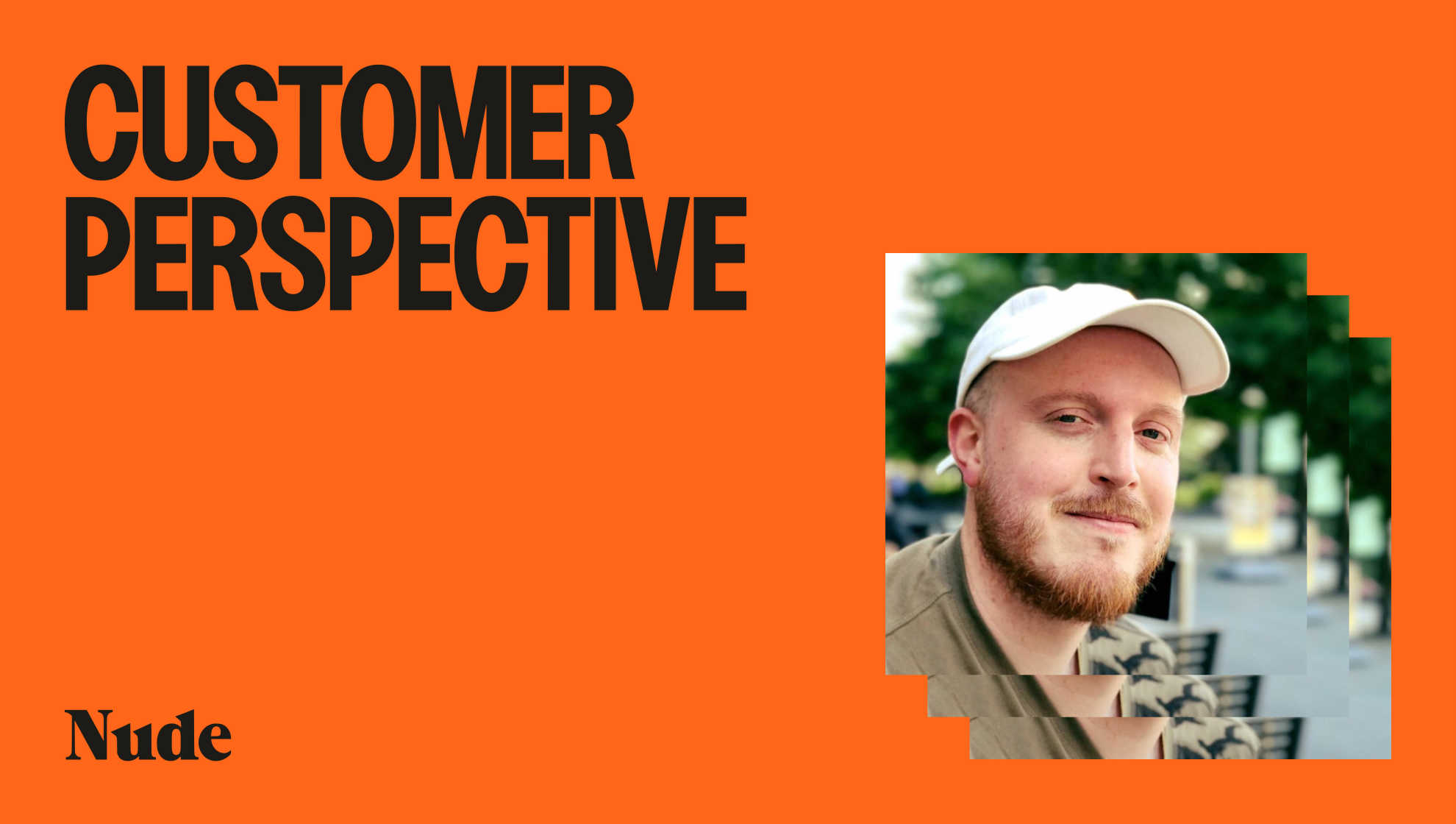Open banking turns fintech into lifestyle tech

Last editedMay 20242 min read
In this guest blog, Nude’s CMO Yoann Pavy discusses how open banking is helping Nude's customers meet their financial goals (without having to give up avocado on toast).
For most of us, managing our finances is a daunting task. But the pressure really ramps up when a major life goal is involved, which for many young people in the UK means getting on the property ladder.
Nude is a savings app for first-time home buyers. Our mission is to get people into their own homes as quickly as possible. And to do so without any of the broad-brush, condescending “advice” that has entered the conversation in recent years, such as swapping avocado on toast for beans on toast, or giving up the Netflix subscription.
Instead, we provide customers with savings strategies that reflect who they are and what their priorities are. And we can do this thanks to the way open banking has enabled us to build a product that is as much a lifestyle app as it is a financial service.
Netflix never stopped anyone owning a home
Of course, it’s not that economising isn’t important when saving. But someone’s lifestyle is their choice. What might make sense for some people to cut back on could be unthinkable for others.
Not to mention that just cancelling Netflix is not going to get anyone a house.
So Nude uses open banking data to provide customers with digestible insights into how they really spend their money. We then use that information to suggest a range of personalised challenges to help them save more, and we help them visualise the outcomes of those choices by estimating the time it’ll take them to move into their new house.
In this way, we’re offering tools to manage their lifestyle and hit their goals, while showing people they can still do the things that matter most to them. We’re not interested in forcing people down arbitrary, one-size-fits-all savings plans.
Outcomes not outgoings
“Explore” and “Ideas” are the two key features of our product that allow us to achieve this.
With Explore, we use open banking transaction data to look at someone's income and spending behaviour, which drives the personalised reports I mentioned. Those insights then drive Ideas, which show where they could make savings and what impact those choices would have on their financial goals.
Right now there are three Ideas categories: takeaways, shopping and travel. But open banking data is so rich that there's huge potential to be as bespoke as we want. It’s not hard to imagine one day having, say, 50 categories to help people save for anything from weddings and holidays, or even for a new baby.
By putting real-life outcomes front and centre, and measuring them through time rather than money, we can help customers feel more connected to their goals and more invested in – and motivated for – the journey to reach them.
VRPs: the next frontier of open banking
We also encourage people to not only think about saving as making changes to their lifestyle. Contributions can also make a very personal and rewarding gift. Gift Time is a newer open banking-enabled feature that allows our customers to provide a link to friends and families, through which they can make a contribution to their savings pot. And the gift giver can also see how much time their contribution will shave off of their friend or loved one’s target.
But there are new open banking developments in the pipeline around Variable Recurring Payments (VRPs) that I am even more excited about, because they’ll enable us to further personalise the experience for our customers.
VRPs will allow us to take recurring payments from customers within agreed parameters. The cool thing about that is we'd be able to then automate recommendations when customers’ transaction data indicates they could save more or less, ensuring we stay ultra-responsive to their situation. This would be perfect for when people experience major changes in their circumstances or for those who have variable incomes.
VRPs are the next frontier of open banking, where automation meets flexibility. I believe they’re something we’ll implement as soon as possible, replacing the static Direct Debit system with something much faster and much more flexible.
Transcending financial services
The future of finance is underpinned by transparency and flexibility. With open banking, it’s possible to help people build a lifestyle that enables them to meet their financial goals on their terms, rather than financial management determining their lifestyle.
